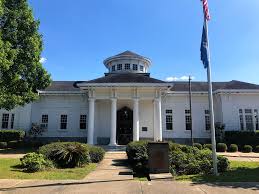Fracking planned in Mt. Hermon
Published 9:42 pm Saturday, February 7, 2015
Fracking will soon be making an appearance in Washington Parish.
According to the Washington Parish Permit Office in Franklinton, two permits have been filed by the Goodridge Petroleum Corporation for fracking rights in Mount Hermon. Goodridge, based out of Houston, filed its first permit in early January and has already begun preparation for drilling. The second permit, filed on Jan. 30, has not yet been approved.
When asked the oil company’s name, an Mike Grand with the Parish Office noted, “It’s strange. It’s out of Houston.”
Petroleum companies often own and operate wells in multiple states, and Goodridge Petroleum currently has wells on 44 fields in eight states. Despite this, and the national debate the practice has caused, many Bogalusa residents admit to not knowing what fracking is or its potential impact on the local economy and land.
Fracking, the practice of fracturing rock with a mixture of water and chemicals, consists of drilling as deep as three miles into the land to get at underground shale deposits. The resulting gas is highly profitable for the petroleum company and state, but the practice is still highly controversial.
Nearby St. Tammany Parish has been protesting for close to a year against fracking in Mandeville and Abita Springs. The city of Covington was host to an outpouring of citizens concerned with the effects of fracking on the land and drinking water. Despite their efforts, a permit was issued to Helis Oil and Gas to in the parish only last month.
While many in the industry see fracking as a necessary practice, providing income, and in many cases local jobs, some local citizens are concerned. The dangers of fracking to both the surrounding structure of the parish and the local drinking water simply cannot be ignored.
One concerned citizen who wished to remain anonymous stated, “These companies are not good stewards of the land. I know what it does to the water supply. Many houses are built on natural stone, and the fracking process will take the mortar right out of the house and collapse it.”
The individual went on to say, “They buy water from other people in order to frack with, and those people see dollar signs because they can sell water, but Louisiana is at a point where they’ll soon be buying water from other states. It can ruin the water and the land.”
These are not unfamiliar concerns. Looking at the Arkansas town of Greenbriar’s battle with fracking, citizens had many of the same concerns that exist among Louisiana residents. A former Arkansas resident stated, “You had no choice in Arkansas. If the majority of the section agrees to let them lease the land, you have to take the same price as anyone else. There are three wells, and (many) had no choice.”
When asked about the second permit applied for by Goodridge, she said, “They won’t wait to be approved. It takes days to burn off the impurities in the natural gas. The people aren’t getting what they think they’re getting.”
Another person who has lived in Bogalusa for close to 25 years, responded to the news, saying, “I have mixed feelings. I know our state and economy could use the money, but the state’s ecology is so delicate that I’m not sure the risk is worth the possible reward.”




